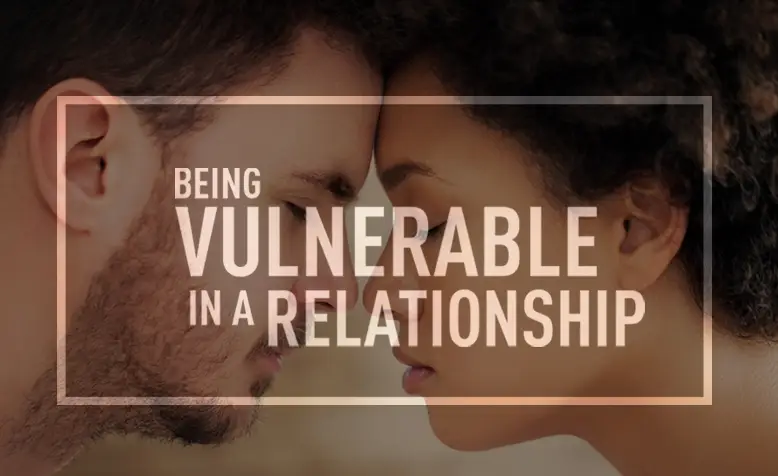We all crave connection. Whether it's with a partner, family member, or close friend, that sense of being truly seen and understood is fundamental to our well-being. Yet, there’s often a barrier that develops, sometimes unknowingly: the fear of being vulnerable. We worry that showing our true selves—our fears, needs, and imperfections—might lead to rejection or judgment. But what if vulnerability wasn't a weakness, but the very key to unlocking the deeper, more meaningful relationships we desire?
What Does Vulnerability Really Mean in a Relationship?
Vulnerability often gets a bad rap, confused with weakness or oversharing. In reality, vulnerability in relationships is about emotional honesty. It's the courage to show up authentically, allowing others to see your genuine thoughts, feelings, and experiences, even when it feels risky.
It's expressing that you're feeling overwhelmed instead of just saying "I'm fine." It's admitting you made a mistake. It’s sharing a hope or a fear that feels tender. It’s articulating a need instead of hoping someone will guess it. It’s not about airing all your laundry, but about selectively sharing your inner world in ways that build connection.
Why We Shy Away From Being Vulnerable
If vulnerability is so beneficial, why is it so hard? Fear is often the biggest roadblock. Fear of rejection, fear of being judged, fear of looking foolish, or fear that our feelings might burden others are common anxieties. Past experiences where our vulnerability was met with criticism or dismissal can also teach us to keep our guard up.
While these fears are understandable, consistently avoiding vulnerability comes at a cost. It can create emotional distance, lead to misunderstandings, foster resentment (when needs aren't met), and ultimately leave us feeling lonely even when we're surrounded by people. Protecting ourselves too rigidly can prevent the very closeness we seek.
The Unexpected Rewards: Benefits of Opening Up
Taking the courageous step to be more vulnerable can transform your relationships in profound ways. Here are some key benefits:
- Deeper Intimacy and Connection: True intimacy flourishes when we feel safe enough to share our authentic selves, flaws and all. When someone accepts your vulnerability, it builds a powerful bond based on genuine understanding, not just shared activities or surface-level conversation.
- Stronger Trust: Trust isn't just built on reliability; it's built on authenticity. When you are vulnerable, you show others that you trust them with your true self. This act of trust often invites reciprocity, creating a stronger, more resilient foundation for the relationship.
- Improved Communication and Understanding: Vulnerability allows you to express your needs and feelings clearly. This replaces guesswork and assumptions with direct communication, leading to fewer misunderstandings and conflicts. When your partner or friend truly understands your inner world, they can respond with more empathy and support.
- Enhanced Problem Solving and Support: When we're open about our struggles, it allows others to offer meaningful support. It also enables couples or friends to tackle challenges together more effectively because the real issues are on the table, not hidden beneath layers of pretense.
Tips for Cultivating Healthy Vulnerability
Opening up doesn't mean spilling everything all at once. It's a gradual process. Here are a few tips:
- Start Small: Share something low-risk first – a minor worry, a moment of gratitude, a small need. See how it's received.
- Choose Your Moments: Pick times when you feel relatively calm and connected, not in the heat of an argument.
- Use "I" Statements: Focus on your own experience ("I feel hurt when...") rather than blaming ("You always...").
- Test the Waters: Gauge reactions. Healthy relationships involve mutual vulnerability. Does the other person also share, or listen with empathy?
- Be Vulnerable with Yourself: Practice self-compassion and acknowledge your own feelings and needs first.
How Therapy Can Help Your Journey
Navigating vulnerability can be challenging, especially if past experiences have made it feel unsafe. Therapy provides a unique, confidential space to explore these fears. A therapist can help you understand your patterns, heal from past relationship wounds, develop self-compassion, and practice communication skills that foster healthy vulnerability in a safe, supportive environment. It's a place to build the courage to connect more authentically, both with yourself and with others.
Ultimately, vulnerability isn't about weakness; it's about the strength it takes to be authentic. It's the pathway to richer, more fulfilling relationships built on trust and genuine understanding. While it involves risk, the potential reward—deep, meaningful connection—is often worth the leap.
If I can help you on your journey, view my calendar and schedule your appointment now.

Comments are closed